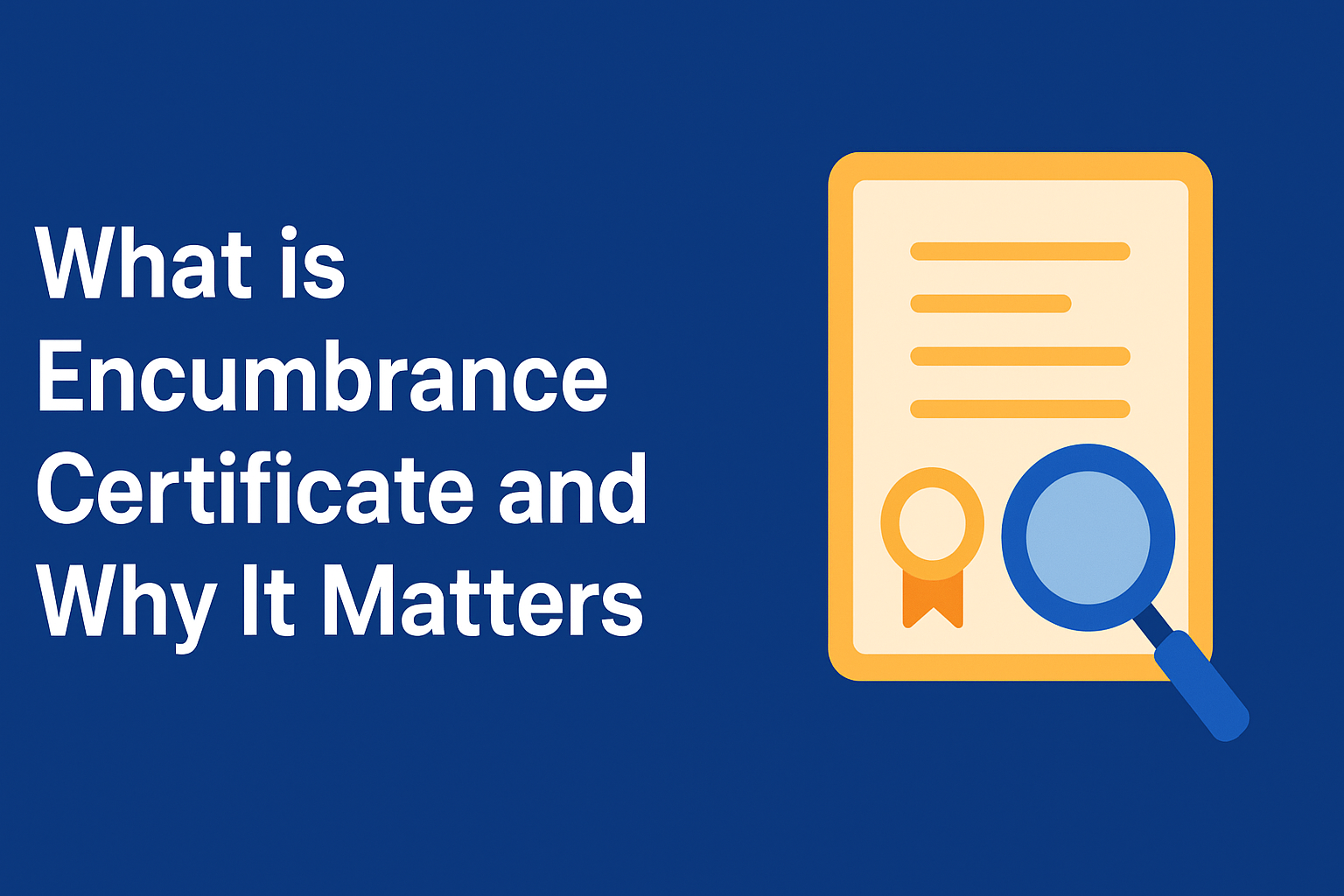If you’ve ever thought about buying a property, you may have heard the term Encumbrance Certificate. But what is an Encumbrance Certificate and why it matters? In simple words, it is a legal document that shows whether a property is free from any legal or financial liabilities. For homebuyers and investors, this certificate acts as proof that the property can be safely purchased without hidden disputes or debts.
For homebuyers and investors, the Encumbrance Certificate acts like a reassurance that the property is clean and free from hidden troubles. Let’s look at what it actually means and why it plays such a big role in real estate deals.

What is an Encumbrance Certificate?
An Encumbrance Certificate (EC) is issued by the local sub-registrar’s office. It records all the important transactions related to a property, such as past sales, mortgages, or ownership changes, over a set period of time.
Think of it as a property’s report card. If the previous owner had taken a loan and not repaid it, or if there’s an ongoing claim on the property, the EC will show it clearly. This helps you make an informed decision and ensures you’re not stepping into someone else’s legal mess.
Why Encumbrance Certificate Matters in Property Deals
Now that we know what an Encumbrance Certificate is, here’s why it’s important before buying a property:
- Confirms Ownership – It tells you who the true owner of the property is.
- Helps with Loans – Banks usually won’t approve a home loan unless you provide an EC.
- Checks for Disputes – It shows whether the property has a clear legal title.
- Protects Buyers – It ensures you don’t unknowingly buy a property tied up in debts or cases.
In short, the EC works like a background verification for your new home, giving you peace of mind before you sign the deal.
How to Apply for an Encumbrance Certificate
Getting an EC is not as complicated as it may sound. You can do it in two ways:
1. Applying Offline
Visit your local sub-registrar’s office, fill out Form 22 with the property details, and pay the required fee. The office will process your request and provide the certificate.
2. Applying Online
In many states, you can now apply through the registration department’s official website. You’ll need to enter the property details, upload the necessary documents, and make the payment online. Once approved, you can download the Encumbrance Certificate without visiting the office.
Difference Between Encumbrance Certificate and Other Property Documents
It’s easy to confuse an EC with other property papers, but they all serve different purposes:
- Sale Deed – Shows the property has been legally transferred from seller to buyer.
- Patta/Khata – Contains land and property tax details.
- Encumbrance Certificate – Confirms the property has no dues, loans, or legal hurdles.
So while each of these documents is important, the EC specifically assures you that the property is financially and legally clear.
Conclusion
Buying property is one of the biggest financial steps in life, and it’s natural to want security before investing. That’s exactly why understanding what is an Encumbrance Certificate and why it matters is so crucial.
Always make it a point to check the latest EC before finalizing any deal. It will not only protect your money but also give you confidence that the property truly belongs to you—free from hidden liabilities or disputes.

Join The Discussion